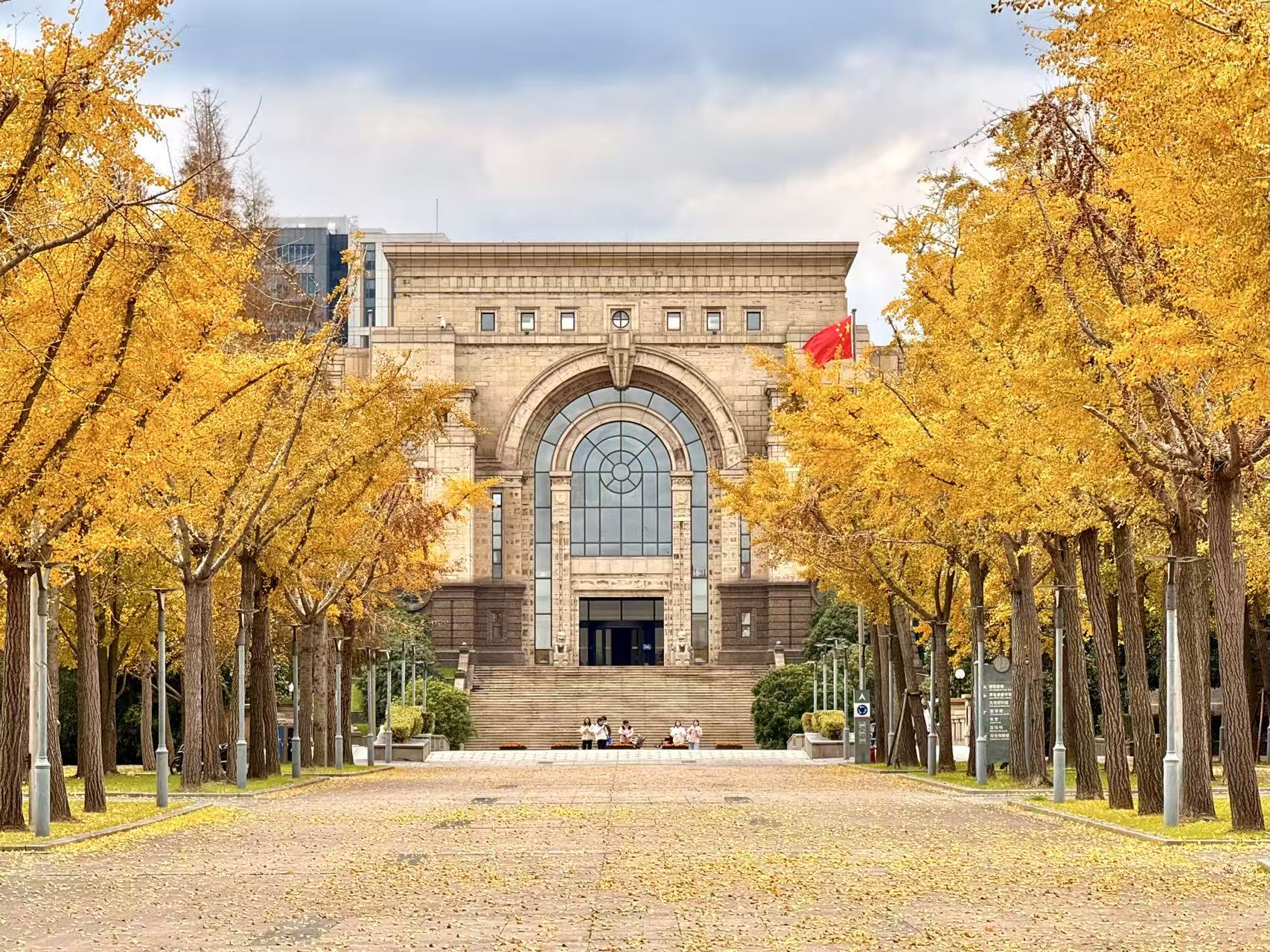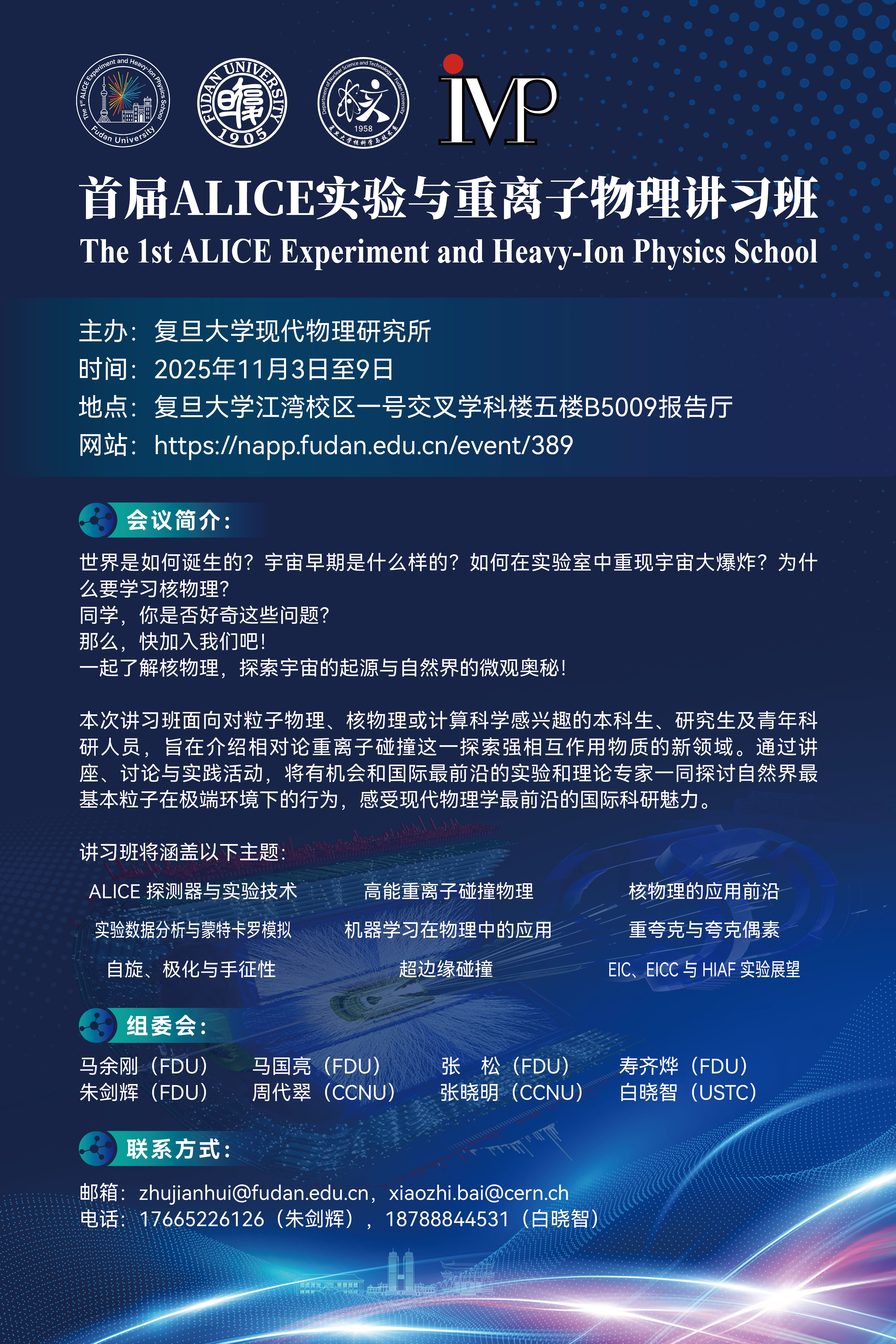- Indico style
- Indico style - inline minutes
- Indico style - numbered
- Indico style - numbered + minutes
- Indico Weeks View
The 1st ALICE Experiment and Heavy-Ion Physics Workshop
→
Asia/Shanghai
复旦大学江湾校区一号交叉学科楼五楼B5009报告厅
Description

The 1st ALICE Experiment and Heavy-Ion Physics Workshop will be hosted by Fudan University in Shanghai, China. The workshop will take place from November 3rd to 9th 2025 at No.1 Interdisciplinary Research Building Jiangwan Campus, Fudan University (复旦大学江湾校区一号交叉学科楼). Please note that November 2nd is reserved for registration and welcome reception.
Are you curious about the physics of the early universe, the nature of nuclear matter under extreme conditions, and how modern experiments recreate the hottest and densest state of matter ever achieved in the laboratory?
The workshop introduces students to the exciting field of relativistic heavy-ion collisions, where nuclei are accelerated to nearly the speed of light and smashed together to create the quark–gluon plasma (QGP) — a state of matter that existed microseconds after the Big Bang.
The workshop will focus on a wide range of topics, including but not limited to:
- ALICE detector
- Heavy-ion physics
- Applications of nuclear physics
- Data and MC
- Machine learning
- Heavy quarks and quarkonia
- Polarization
- Ultra-peripheral collisions
- EIC, EICC and HIAF
The workshop is designed for motivated undergraduate and graduate students with an interest in particle physics, nuclear physics, or computational science. Prior coursework in quantum mechanics and statistical mechanics is helpful but not strictly required.
Through a combination of lectures, discussions, and hands-on activities, participants will:
- Gain a solid understanding of the fundamental concepts in high-energy nuclear physics
- Learn about the LHC-ALICE experiment at CERN, including detectors, observables, and cutting-edge discoveries
- Explore key research topics such as heavy-flavor probes and polarization
- Develop essential skills in data analysis and simulation that are widely applicable in both physics research and interdisciplinary fields
Join us to discover how the smallest building blocks of nature behave in the most extreme environments — and to become part of an international research community at the frontier of modern physics.
参与提问、讨论最积极的同学,有神秘大奖一份。
注册费:
教师/博后2000元,研究生1500元,现场支付。本科生免交。
住宿(自付):
老师/博后:五角场辉盛坊公寓酒店,大床房,500元/晚
学生:五角场国航路CitiGo欢阁酒店,双床房,390元/晚,两人住一间
会议地点:
复旦大学江湾校区一号交叉学科楼五楼B5009报告厅
Local organizing committee:
Yugang Ma (FDU) (mayugang@fudan.edu.cn)
Guoliang Ma (FDU) (glma@fudan.edu.cn)
Song Zhang (FDU) (song_zhang@fudan.edu.cn)
Qiye Shou (FDU) (shouqiye@fudan.edu.cn)
Jianhui Zhu (FDU) (zhujianhui@fudan.edu.cn)
Daicui Zhou (CCNU) (dczhou@mail.ccnu.edu.cn)
Xiaoming Zhang (CCNU) (xiaoming.zhang@cern.ch)
Xiaozhi Bai (USTC) (xiaozhi.bai@cern.ch)
Local organizing secretary:
Wenting Yu (FDU) (yuwenting@fudan.edu.cn)
主办单位:复旦大学
协办单位:华中师范大学


Registration
1 st ALICE Experiment and Heavy-Ion Physics School
